For many LGBTQI+ people, the sporting field can be an intimidating place.
Jackson Bova first started playing football when he was nine years old.
But his experience with casual homophobia at his old football club almost saw him stop playing the sport.
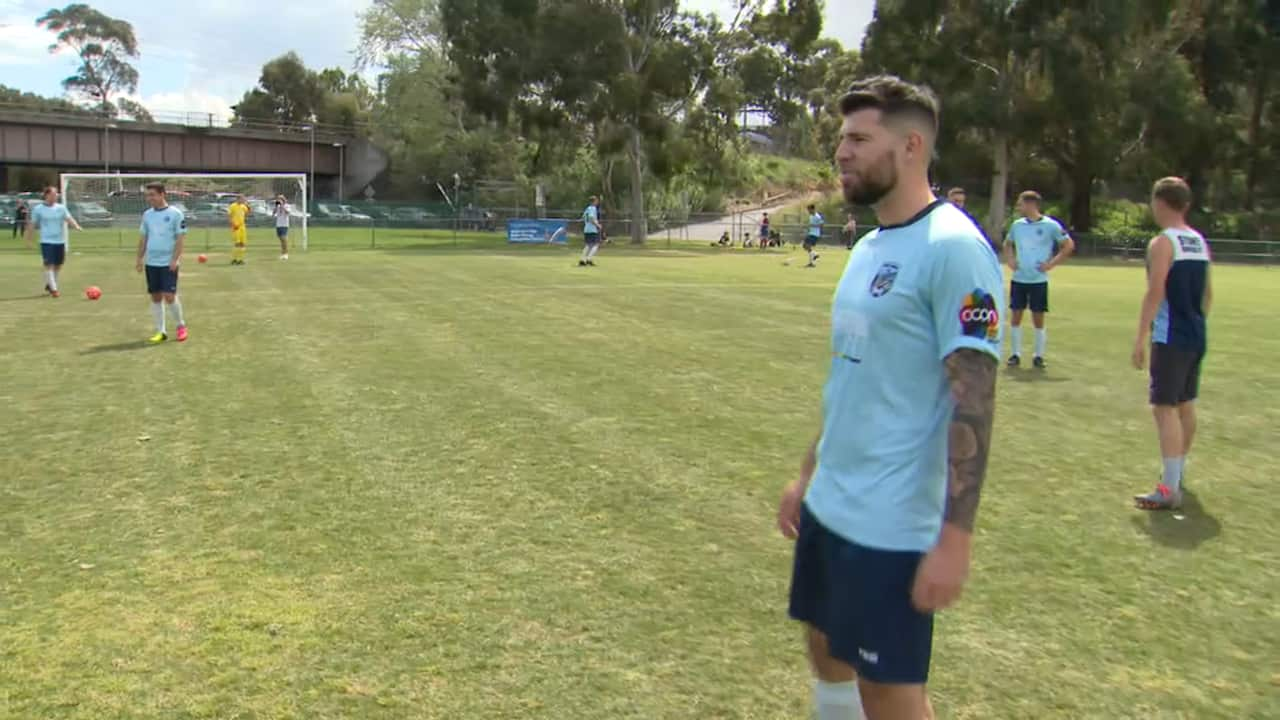
“When I was playing for my club, back in my area, I never really felt comfortable talking about who I was, or coming out,” he said.
“If I had come out to my team, I’d have essentially felt like I’d be shunned.”
It’s really hard to play or do anything when you can’t be your authentic self. I was actually very close to giving up the sport.
Just as he was about to give up football, Bova found the Sydney Rangers, an LGBTQ+ affirming football team, which he now helps run as a vice president.
“I couldn’t be happier. Now I get to play the sport that I love with people that support me," he said.
His experiences are shared by Frankie Sullivan who identifies as genderqueer and non-binary and is a member of the Sydney Flying Bats.
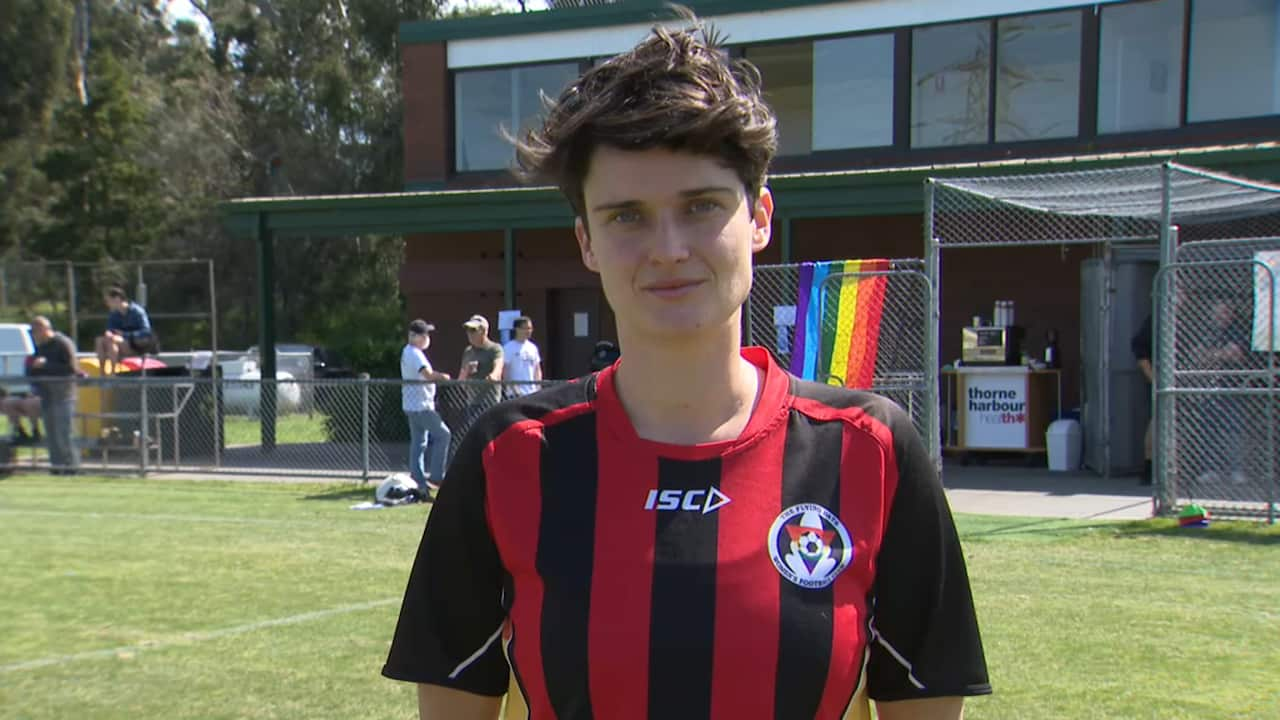
"Historically there have been a lot of exclusion and transphobia and issues with sponsorship and people not wanting to be out,” Sullivan said.
I think it's just very important to send that message that sport is here for everybody.
Both players took part in this weekend's Pride Football Australia Tournament in Melbourne - which first took place in 2009.
The Men’s Melbourne Rovers side contested the Justin Fashanu Cup against the Sydney Rangers, named in honour of the first openly gay professional footballer.
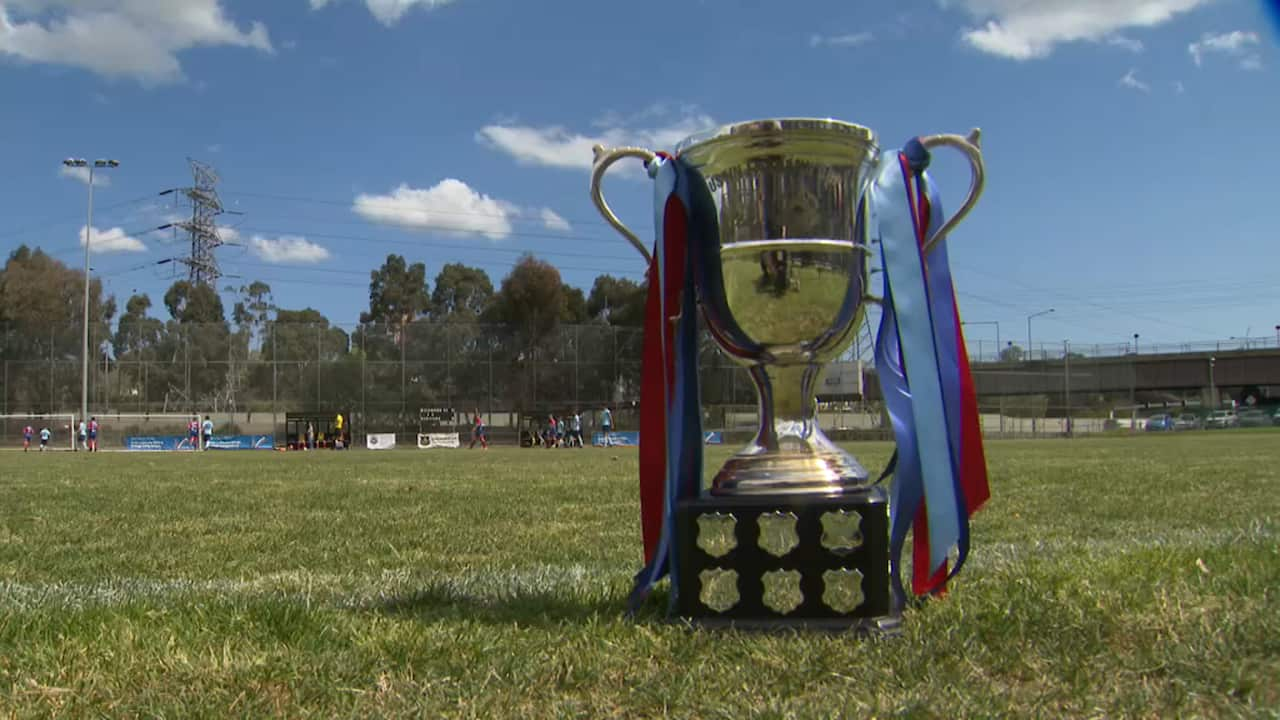
There’s also a women’s trophy, which was contested by the Female Rovers squad and the Sydney Flying Bats, named after Matilda’s legend Julie Murray.
"It's important for us to have a presence in the community,” James Cardall from Pride Football Australia, said.
“It's just a really really good way of bringing sporting clubs together and just being proud of who we are and playing the game that we love.”
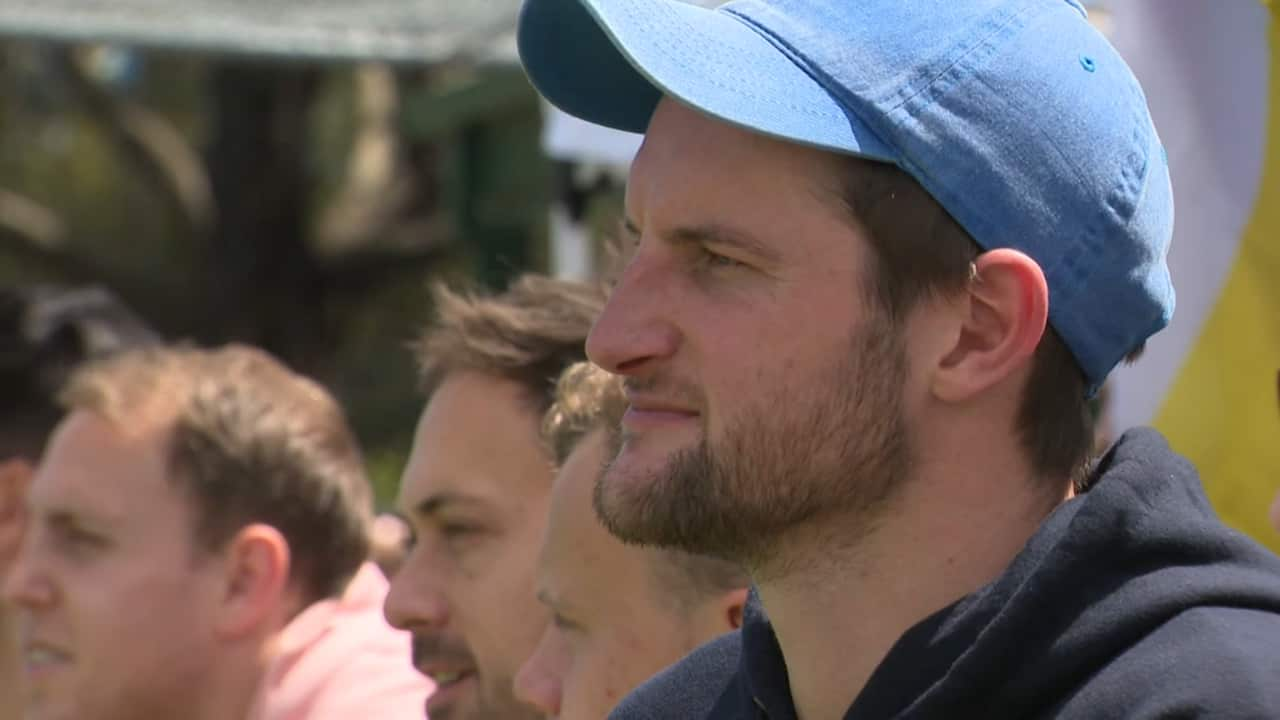
Joining the tournament this year was former Newcastle Jets player Andy Brennan.
In May, he became the first Australian professional football player to come out.
"My experiences since coming out have been nothing near that I thought it would be,” he said.
I was a bit scared, I was fearful of what people might say and think, but for me, it's been brilliant.
Brennan now plays in the National Premier League for Green Gully.
But for one special match, he laced up with the Melbourne Rovers to show football can be an inclusive space for closeted players.
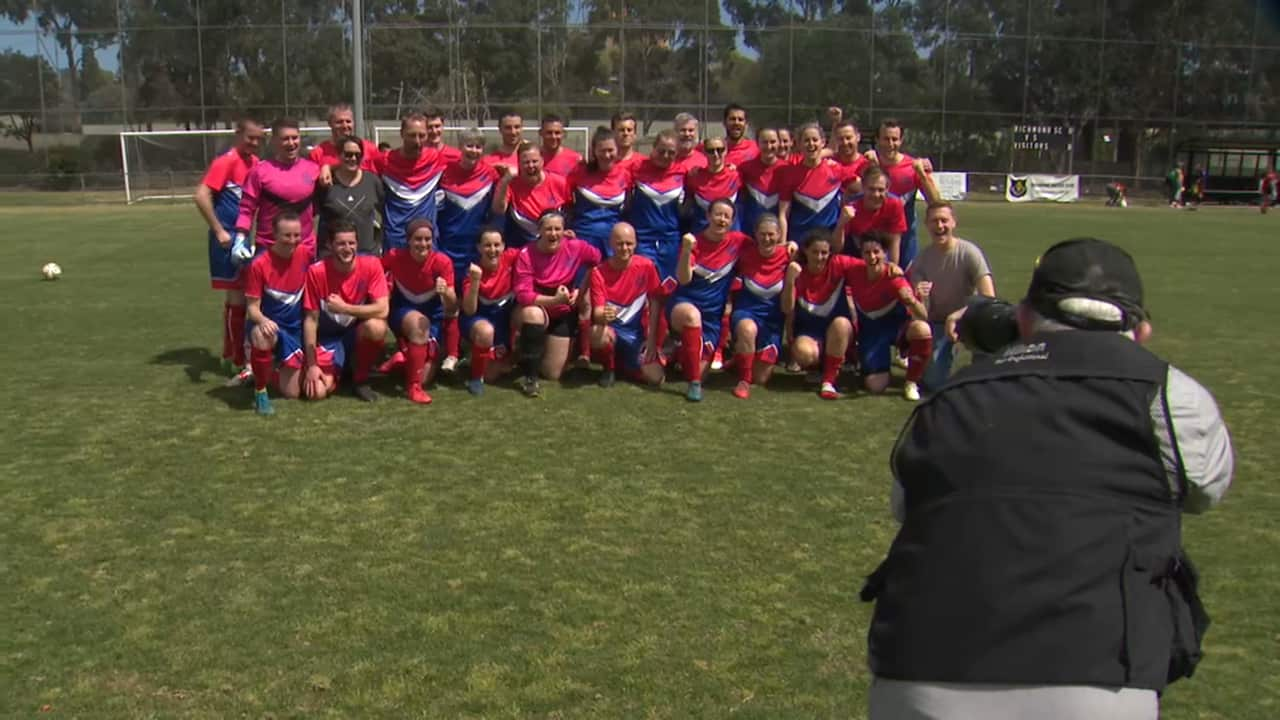
“The more things like this happen, the more people see that this is okay, and you can be themselves, football will be better for it.”
“And the more all sport does to do this it's just going to create a better environment for everyone to play in and feel included which is so important.”
While attitudes to gender and sexually diverse people are improving in the sporting world, there are still gaps in representation at the top level, especially in the men's game.
Only eight gay players who've played professional football have chosen to come out.
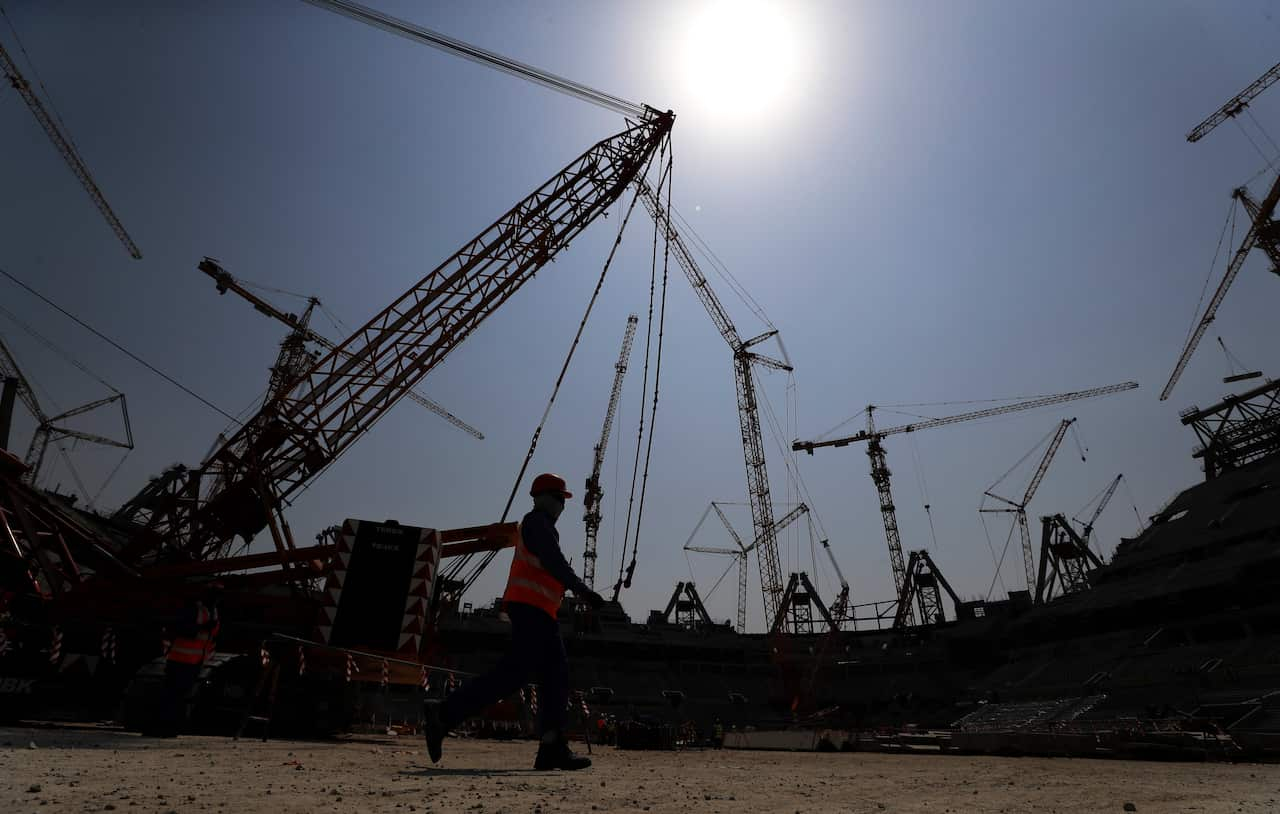
The safety of LGBTQ+ football fans has also been a concern ahead of the 2022 World Cup in Qatar, where homosexuality is illegal.
Qatar has said gay and transgender fans will be welcome to attend if they respect Qatari customs.
Brennan said it's up to nations like Australia to set a better example to the world.
"I think it's really important that countries or places that are inclusive, they keep pushing for a more inclusive sport in general worldwide,” he said.

